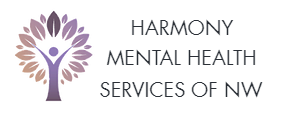Get a personal consultation

Richard Madsen
Marketing Consultant Expert
- Donec pretium augueultrices interdum
- Nunc nulla ante, auctor non dolor vitae
- Aliquam justo velit porttitor sodales
“The theme is always up to date with the changes of wordpress, following everything that’s happening.”
George Anderson
Avada’s CEO
What problem are you trying to solve?
WHAT IS TMS?fuseology2021-01-26T03:00:23+00:00
Transcranial Magnetic Stimulation (TMS) is a non-invasive method of brain stimulation used to treat major depression. We offer NeuroStar Advanced Therapy which is an innovative, FDA-cleared therapy that can help people who struggle with major depression even after taking antidepressant medication.
WHO IS ELIGIBLE?fuseology2021-01-26T03:00:18+00:00
TMS is indicated by the FDA for the treatment of depressive episodes in adult patients suffering from Major Depressive Disorder and OCD, who failed to achieve satisfactory improvement from previous anti-depressant/anti-anxiety medication treatment in the current episode.
TMS therapy should NOT be used if you have metal implants in or around your head (except for standard amalgam dental fillings). These include but are not limited to a cochlear implant, implanted cardioverter defibrillator (ICD), pacemaker, deep brain stimulator, vagus nerve stimulator, or metal aneurysm clips or coils, staples, or stents.
HOW DOES TMS WORK?fuseology2021-01-26T03:00:12+00:00
In each TMS therapy session, the patient is comfortably seated in a chair, a custom cloth cap is placed onto the head followed by a cushioned helmet. The helmet generates brief magnetic fields, at a similar amplitude to that used in magnetic resonance imaging (MRI) systems. Typically, during TMS therapy sessions, patients hear a tapping sound and feel a tapping sensation in the head area during the 20 minute-treatment. To diminish the sound, the patient is provided with earplugs.
After each session, patients can return home independently, and immediately resume their daily routine.
HOW FREQUENT ARE SESSIONS?fuseology2021-01-26T03:00:07+00:00
TMS requires daily sessions over 4-6 weeks. Treatment sessions build on one another so it’s best to follow the recommended treatment course. Once treatment is complete there can sometimes be checkup/maintenance visits as needed.
WHAT ARE THE MOST COMMON SIDE EFFECTS?fuseology2021-01-26T02:59:54+00:00
The most common side effect is temporary, mild pain or discomfort in the area of the treatment site, which occurs during the TMS therapy session. This typically occurs only during the first week of TMS treatment. Other side effects may include muscle twitching, headache and jaw pain.
HOW IS DEEP TMS DIFFERENT THAN TRADITIONAL TMS?fuseology2021-01-26T03:00:52+00:00
Deep TMS offers effective results in almost half the time of other treatments (just 20 minutes per session compared to 37 with traditional TMS), requiring daily sessions over 4-6 weeks.
WHAT ELSE IS TMS APPROVED FOR?fuseology2021-01-26T03:01:20+00:00
In the U.S. there are now 2 FDA cleared indications: Depression and now OCD! TMS is considered investigational as a treatment for all other indications, including but not limited to: bipolar, schizophrenia, bulimia nervosa, migraines, fibromyalgia, panic disorder, Parkinson’s disease, PTSD, alcohol dependence, smoking cessation, chronic pain, Alzheimer’s, ADHD and Autism.
